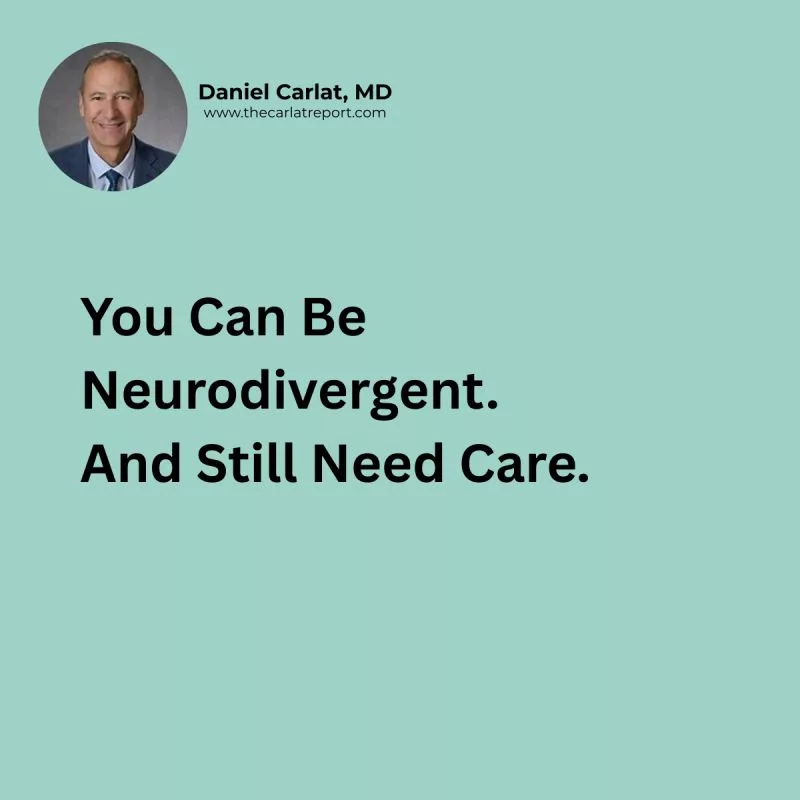At Carlat Publishing, we regularly debate trends in psychiatry—and neurodivergence is one of today’s most charged topics.
Let’s call it opinion divergence: Some on our team feel that the DSM-5 term “autism spectrum disorder” is politically insensitive. Others see it as clinically essential.
That conversation got me thinking: How did we get to a place where a diagnosis is considered offensive?
Why it matters:
- Framing ADHD and autism as “just differences” can discourage treatment
- It sends a mixed message—suggesting diagnosis is something to be ashamed of
Here’s what we know:
- ADHD and autism are neurodevelopmental disorders with functional impairments
- Diagnoses unlock access to support—school plans, therapy, medications
- Over-pathologizing is real—but so is under-serving people who are struggling
Reframe or Clarify:
- If someone with early heart disease said they were “cardiac diverse” and skipped follow-up, we’d call that dangerous
- Why should it be different for psychiatric conditions?
- This is psychiatric exceptionalism—the idea that brain-based disorders are somehow less real, less medical
- And it quietly harms the very people it aims to protect
We need both: affirmation of difference and clinical support when needed.
Discussion Prompt
- How do you help patients understand diagnosis without shame?
- Share to open up a more balanced—and sometimes uncomfortable—conversation about neurodiversity and care.
- Join the conversation on LinkedIn with Dr. Carlat
- Follow for evidence-based skepticism in psychiatry
Related Articles
-
Employment for Adults with Autism
Article with Scott Standifer, PhD -
Top 10 Findings: Alcohol, ADHD, and Antipsychotics
Podcast Episode with Chris Aiken, MD and Kellie Newsome, PMHNP -
Aggression in Psychiatric Practice
Webinar with Joshua Feder, MD


_-The-Breakthrough-Antipsychotic-That-Could-Change-Everything.webp?t=1729528747)



